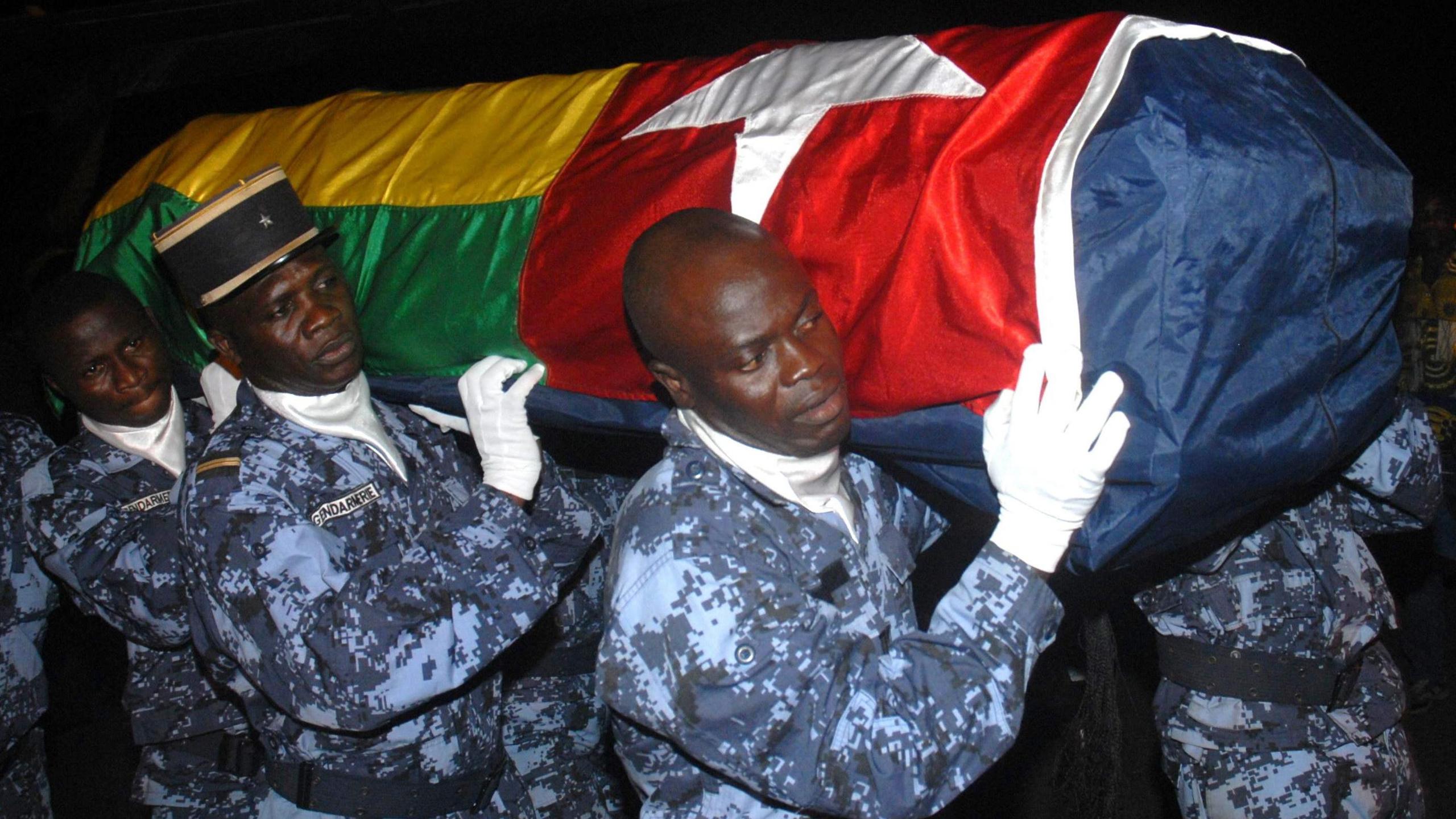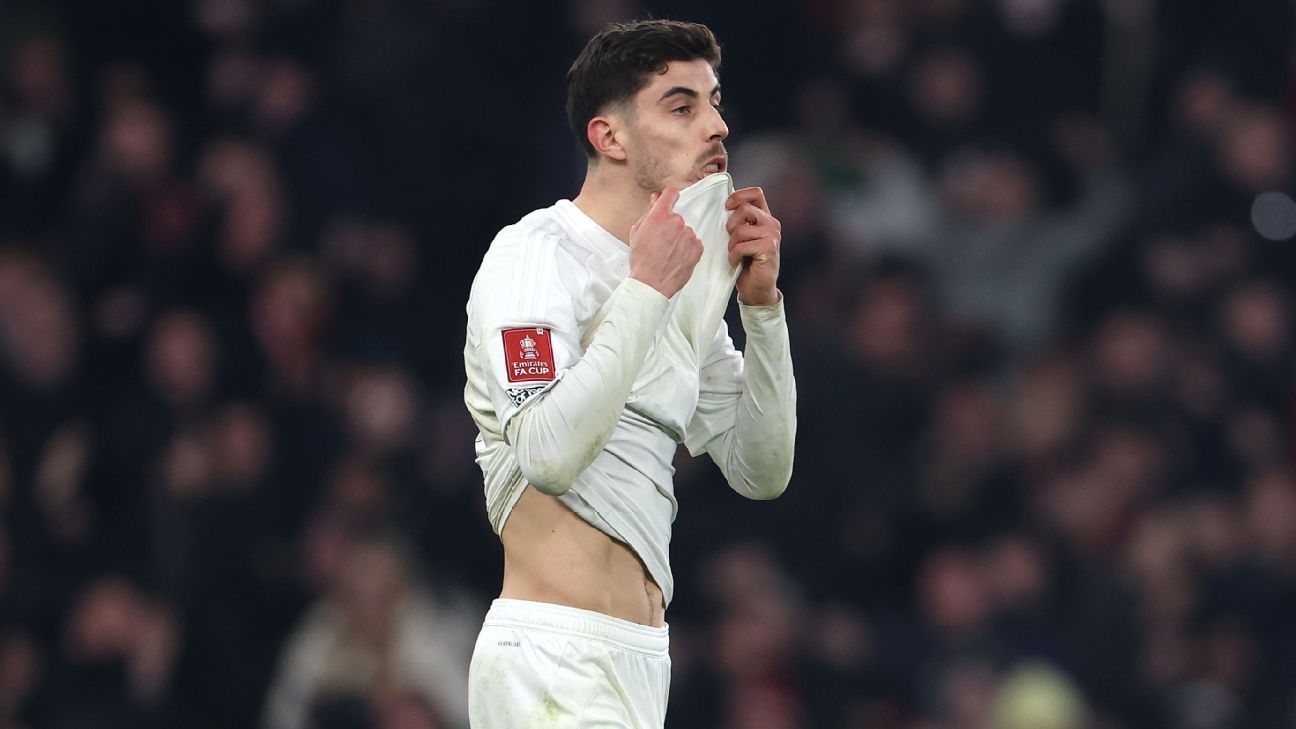 Image source, Getty Images
Image source, Getty Images
Two members of Togo's delegation travelling to the 2010 Africa Cup of Nations in Angola were killed in a gun attack by separatists
Piers Edwards
Football writer
Warning: This article contains descriptions of violence.
As he feared for his life, crouching in a stationary bus being sprayed by bullets, Emmanuel Adebayor had one last wish.
The Togo squad he captained had come under attack while travelling to the team's base in northern Angola just days before the 2010 Africa Cup of Nations.
At least one member of the delegation had been shot. Adebayor, dreading he might be next, called his pregnant partner.
"'Listen, if the baby is a boy, name him Junior Emmanuel. If she's a little girl, make sure you name her Princess Emmanuella'," he instructed.
"She [replied] 'Why? Why? Why are you telling me this??'
"Then they started shooting again and I had to throw the phone somewhere."
Fifteen years on, that attack on 8 January 2010 still shapes his outlook.
"Since that day, something changed in me," Adebayor, 40, told BBC Sport Africa.
"I started telling myself: 'You have to embrace and enjoy every single moment as if it is the last one, because you never know when that is'.
"Cabinda made a huge difference in my life."
Unaware of a 'war zone'
Image source, Getty Images
Image caption,Security was tightened in Angola after the attack in Cabinda, and the finals went ahead without Togo
After preparing in Congo-Brazzaville for the finals, the Togolese were travelling into the province of Cabinda, an enclave separated from the rest of Angola by the Democratic Republic of Congo.
Tournament rules stated they should have flown into the Angolan capital Luanda and then back north again. The delegation chose the road instead.
The West Africans were given a security escort but the players - instead of sensing any threat - simply made a joke about it.
"It was like a movie the way they dressed," Adebayor recalled.
"You couldn't even see their eyes. They had knives, grenades, AK47s, pistols.
"I'm like, 'Do these people think they are ninjas?' We didn't know we were in a war zone."
The gun attack, launched by separatists who had never accepted the decision of the former colonial power Portugal to integrate Cabinda into Angola, started as they were driving through rainforest.
With their bus driver seriously wounded early on, meaning he could not drive the squad away, a vicious firefight ensued.
It lasted at least half an hour, with third-choice goalkeeper Kodjovi Obilale among those shot, being hit in the spine.
"He was wearing a white singlet. He stood up and it was all red," Adebayor said.
'I had never seen anyone die'
Eventually, the players were rescued from their pockmarked bus bearing shattered windows and taken to a hospital on the outskirts of Cabinda City.
Riding alongside Adebayor was his personal assistant Stanislas Ocloo, who was working as a media officer for Togo's football federation.
"He would not stop complaining 'Oh, my stomach', but what we were seeing is a small hole like when you get an injection," the former striker, then a Manchester City player, said.
"When we reached the hospital and carried him on a stretcher, I [said] 'My friend, you have to be strong. Can you promise me you will try?'
"When the doctor came, he actually said he had two or three bullets through the same hole. So when Stan heard that, he gave up.
"I'm like: 'No, you have to go through it. The family is waiting for you in Togo. We are all with you'.
"Then I realised the head was not moving anymore.
"I had never seen anybody die in front of me, so I didn't know how people died.
"So I'm like, 'Come on, Stan'. I was calling the guy for hours. He wouldn't respond. So literally, I saw somebody die in front of me.
"You actually see somebody closing his eyes for the last time ever. It's so, so hard to believe."
Ocloo was one of the two Togolese delegation members to die that day, with assistant coach Amelete Abalo also fatally shot.
Obilale, meanwhile, has been paralysed below the waist ever since.
Image source, Getty Images
Image caption,A banner bearing the photos of the two men killed, bearing the message 'Our thoughts are with you' was displayed when the squad returned to Lome
Buses, bags and 'bombs'
Adebayor believes more deaths would have occurred if not for a mix-up at the Congo-Angola border.
When they made their way through the checkpoint, the Togo delegation had been given two buses - one with air conditioning, one without.
By mistake, their kit and luggage had been loaded onto the wrong bus, so the players chose to take the bus without aircon to save time reloading.
It turned into a life-saving decision.
"In the [first] bus, the windows and curtains were closed because of the AC," Adebayor explained.
"But behind, in the second bus, we opened all the windows and most of the players had their shirts off because it was so hot.
"I think when the attackers saw us, they thought we were the supporters that were following. So they attacked the first bus.
"They exploded that bus. [It] was definitely either a grenade or bomb."
Dealing with trauma
Image source, Getty Images
Image caption,Emmanuel Adebayor was back in action for Manchester City just 19 days after the attack, and scored four days on from that against Portsmouth
It did not take long for the Togolese authorities to withdraw the team from the Nations Cup.
A fortnight later, Adebayor had returned to the north of England.
"I will use this platform to say a big thanks to Manchester City, because when I went back, they gave me a psychologist who was every day in my house, telling me how to deal with it," he said.
"He was always trying to talk to me about something else - the future, nature, life itself - for me to be able to forget about it. And he actually helped me to be another person."
Despite the counselling, the trauma has not entirely gone away.
"When somebody drops something, which has a similar sound to gunshot, then you remember what happened in 2010," he said, admitting he also has problems watching action films that feature guns.
"You have to live with it. Even though I went through that difficult moment, today it's part of my life."
So is the daughter that Adebayor's partner gave birth to in June that year.
With her father alive, they chose to name her Kendra.

 By BBC (Sports) | Created at 2025-01-08 11:24:33 | Updated at 2025-01-13 18:15:42
5 days ago
By BBC (Sports) | Created at 2025-01-08 11:24:33 | Updated at 2025-01-13 18:15:42
5 days ago







